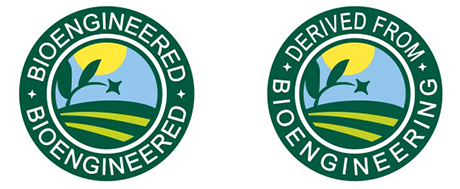The US Department of Agriculture (USDA), through its Agricultural Marketing Service (AMS) published its final rule (NBFDS Final Rule) on December 21 establishing a nationwide labeling disclosure requirement for foods containing bioengineered (BE) ingredients, defined as foods or substances that contain genetic material that has been modified through in vitro recombinant deoxyribonucleic acid (rDNA) techniques and for which the modification could not otherwise be obtained through conventional breeding or be found in nature. While a more thorough analysis is still being conducted, here we provide a summary of the major topics addressed in the NBFDS Final Rule.
Applicability
Consistent with the proposed rule, the NBFDS Final Rule would apply to foods that are subject to the labeling requirements of the Federal Food, Drug, and Cosmetic Act (FFDCA), including but not limited to raw produce, seafood, dietary supplements, and most prepared foods, such as breads, cereals, nonmeat canned and frozen foods, snacks, desserts, and drinks.
The NBFDS Final Rule also applies to some of the meat, poultry, and egg products independently regulated by the USDA, but only under limited circumstances where an ingredient regulated by the FDA predominates.
Lastly, the NBFDS Final Rule would not apply to pet food and animal feed or to distilled spirits, wines, or malt beverages as defined by the Federal Alcohol Administration Act.
Exemptions
The NBFDS Final Rule exempts the following:
- Food served in restaurants or similar retail food establishments
- Very small food manufacturers
- Food derived from an animal shall not be considered a bioengineered food solely because the animal consumed feed produced from, containing, or consisting of a bioengineered substance
- Food certified under the National Organic Program
Interestingly, the exemptions also includes foods in which no ingredient intentionally contains a BE substance, with an allowance for an inadvertent or technically unavoidable BE presence of up to 5% for each ingredient.
When Disclosure Is Not Required
Disclosure is not required when a food does not contain detectable modified genetic material. The AMS indicated that regulated entities can demonstrate that modified genetic material is not detectable by
- maintaining records verifying that a food is sourced from a non-BE crop or source;
- showing that a food has been subjected to a refinement process validated to remove modified genetic material; or
- maintaining records of analytical testing results demonstrating the absence of modified genetic material.
Additionally, the AMS intends to provide industry with further instruction/guidance on acceptable validations of refining processes and acceptable testing methodologies used to show that a food does not contain detectable modified genetic materials.
Lastly, since the definition of BE excludes an incidental additive that is present in food at an insignificant level and does not have any technical or functional effect in the food, as described in 21 CFR 101.100(a)(3), these products are not subject to the NBFDS Final Rule disclosure requirement.
List of BE Foods
In a break from the proposed rule, the USDA created a single list to identify the crops or foods
that are available in a bioengineered form, and to aid regulated entities considering whether they may need to make BE disclosures. The list of bioengineered foods comprises the following:
- Alfalfa
- Apple (ArcticTM varieties)
- Canola
- Corn
- Cotton
- Eggplant (BARI Bt Begun varieties)
- Papaya (ringspot virus–resistant varieties)
- Pineapple (pink flesh)
- Potato
- Salmon (AquAdvantage®)
- Soybean
- Squash (summer)
- Sugarbeet
However, the BE disclosure requirement is not limited to these ingredients; regulated entities must provide BE disclosures when their records show that foods or ingredients are bioengineered, regardless of whether the food/ingredient is on the list of BE foods.
Disclosure Methods
According to the NBFDS Final Rule, regulated entities have various options for disclosure including text on a food label, electronic or digital link and/or text message, or use of one of the following symbols:

Additional options such as a phone number or web address are available to small food manufacturers or for small and very small packages.
Important Dates
- Implementation Date: January 1, 2020 (commence review of products that require BE disclosure, identify recordkeeping requirements, and consider planned disclosure type).
- Extended Implementation Date (for small food manufacturers): January 1, 2021.
- Voluntary Compliance Date: Ends on December 31, 2021.
- Mandatory Compliance Date: January 1, 2022 (regulated entities must be in compliance with all NBFDS Final Rule requirements).